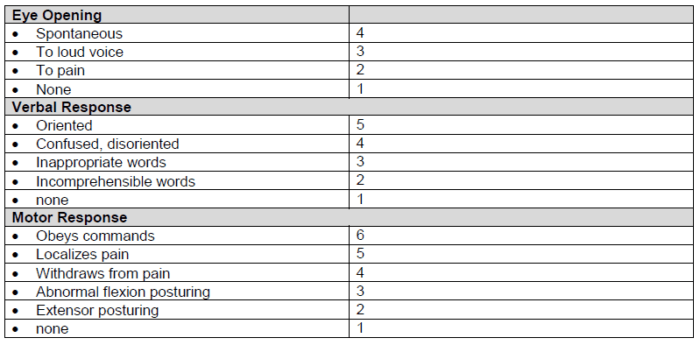What Is a Coma and Its Causes In End Stage Disease?
Introduction
A coma is a decreased level of consciousness whereby a person does not react with the surrounding environment. They can have different levels of unconsciousness and unresponsiveness depending upon how much of their brain is functioning.
Glasgow Coma Scale
The Glasgow Coma Scale is a simple way of measuring the depth of coma based upon observations of eye opening, speech, and movement. The GCS can be used as a standard method for any health caregiver to assess change in patient status.


CONTINUA LEARNING
Simplify Your Hospice Team’s Training and Skill Building
A complete solution for your agency: more than 125 hospice courses, caregiver in-services, training plans, and more.
Causes of Coma In End Stage Disease
Altered consciousness and coma can be caused by the failure of other organ systems.
- Cerebral edema (swelling due to increased fluid)
Cerebral edema can be caused by abnormal electrolyte damage, lack of oxygen or damage from stroke, brain tumor, and head injury.
- Lack of oxygen
Without oxygen the brain cannot function. The lungs extract oxygen from the air. Hemoglobin in red blood cells pick up oxygen and the cardiovascular system delivers oxygen to the brain. If any part of this system fails the supply of oxygen to the brain is compromised. Respiratory failure from chronic lung disease, primary lung cancer or heart failure can interrupt the supply of oxygen transported from the lungs into the bloodstream.
- Cardiac arrhythmias
Irregular heart rhythm can occur from the effects of cardiovascular disease, metabolic changes and lack of oxygen. The ineffective contractions of the heart muscle can’t supply adequate blood flow to the brain.
- Anemia
Low red blood cell counts and hemoglobin caused by cancer and other end stage diseases, decrease the amount of oxygen available to be delivered to the heart muscle and brain.
- Hepatic Failure
The liver breaks down and metabolizes chemicals. Liver failure can cause an excess of dangerous chemicals which can cause brain cells to cease functioning (hepatic encephalopathy) and cause coma directly.
- Renal Failure
Kidney failure can cause a variety of metabolic waste to accumulate in the bloodstream and cause heart arrhythmias which affect brain function indirectly or uremia (high blood levels of urea) which is directly toxic to brain cells.
If you found this article informative and useful share it with your friends and colleagues.
